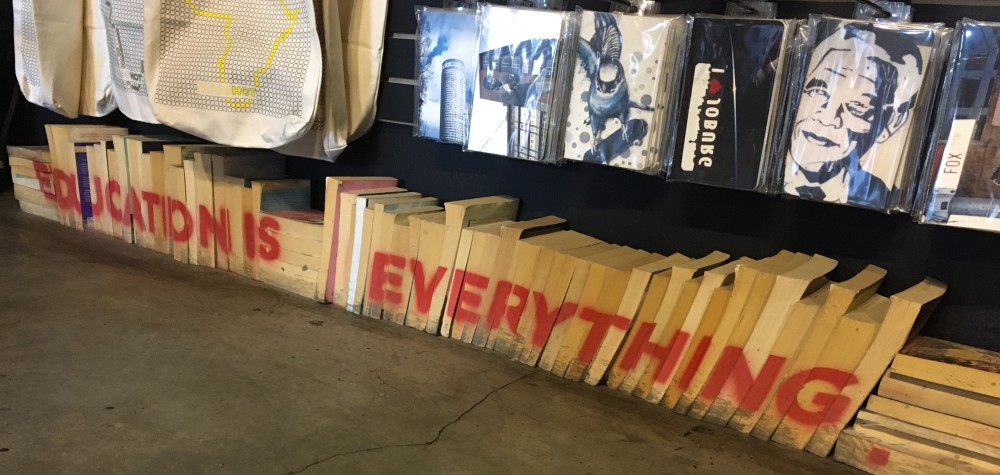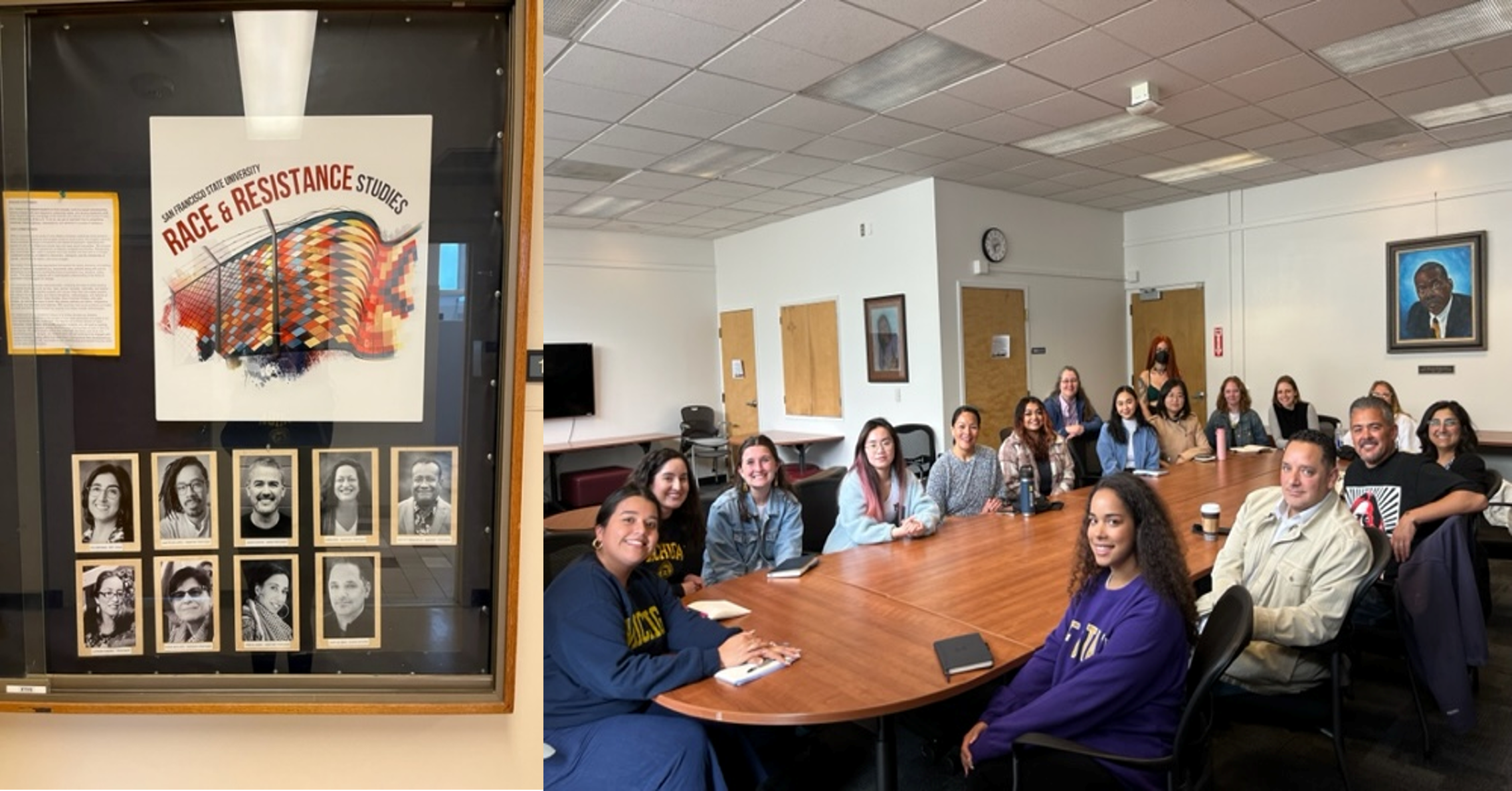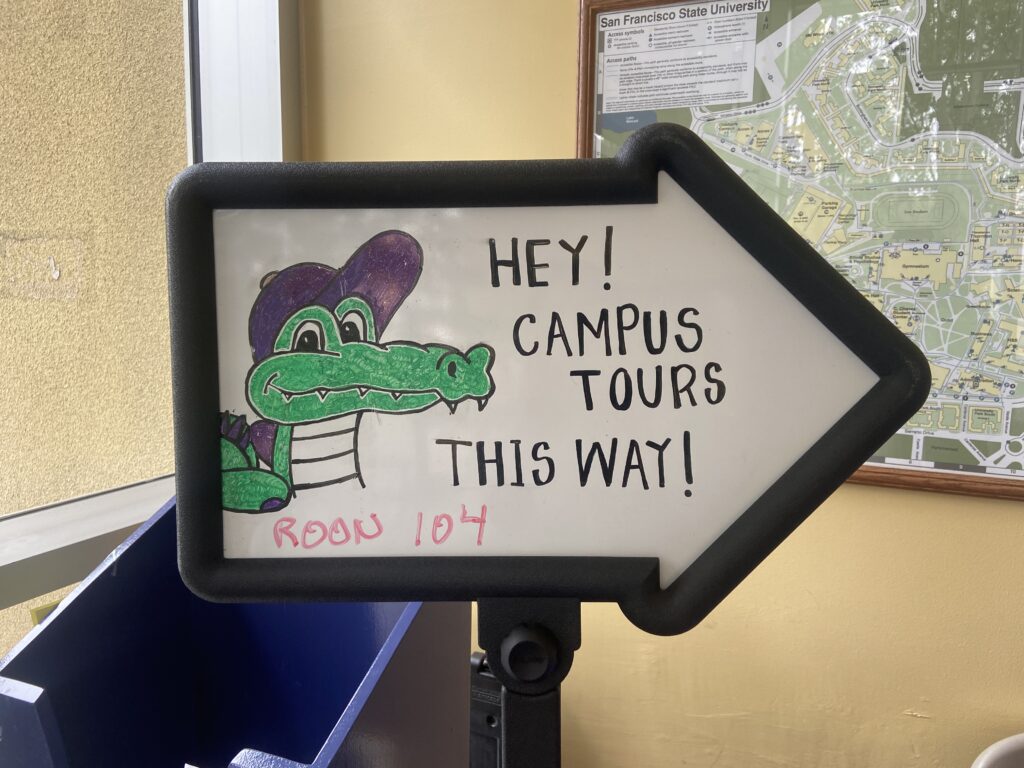
We begin our time at San Francisco State University (SFSU) with a self-guided tour of campus, afterwhich we enjoy lunch at the Vista Room. This on-campus dining facility is a working part of the university’s hospitality and tourism management degree. Students build knowledge about and gain exposure to the hospitality/tourism industry. In chatting with students working in the Vista Room, we learned that they take “rotations” to build their skills for every aspect of the food and beverage management business.
Our group spent the third day of the experiential learning trip at San Francisco State University, where we met the chair and some faculty from Race and Resistance Studies. San Francisco State was the first college or university in the United State to have its own College of Ethnic Studies and within this college is the Race and Resistance Studies Department.
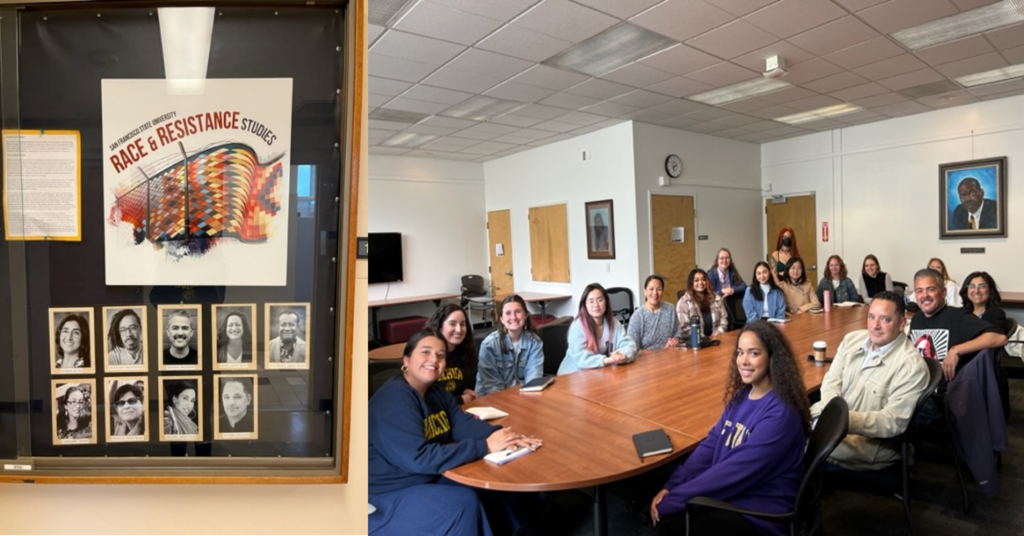
The chair, Dr. Bakrania, and faculty, Dr. Solomon, and Dr. Ferreira, met with our group and shared some context about the goals of this department and how the department came to be. Race and Resistance Studies, originally named Comparative Ethnic Studies, was restructured to explore the history of incarceration in the United States, examine comparative relational work, and embody liberation studies for students and communities of color. With the new vision, the department adapted its courses to focus on three main objectives: race, power, and resistance. For example, Raza 694: Community Service Learning, was revamped to be Community Engagement Learning as an effort to deepen the community impact. Previously, the course required students to volunteer at a center of their choice for one semester. In the revamped version of the course, students enroll in the class for one year and commit to serving a specific site within the Bay Area to truly build relationships with those at the center and the people it serves. The faculty mentioned the importance of students creating long, positive community relationships, so R+R students learn how to do that in and outside of the classroom.
Next, the CSHPE group was treated to a panel discussion with SFSU student affairs administrators, organized by Alvin Mangosing, Assistant Director of Residential Life. Panel participants describe their experiences working with SFSU students, and share their professional backgrounds. The occasion for CSHPE students to hear from others about their varied career trajectories comes at an opportune point in our study program.
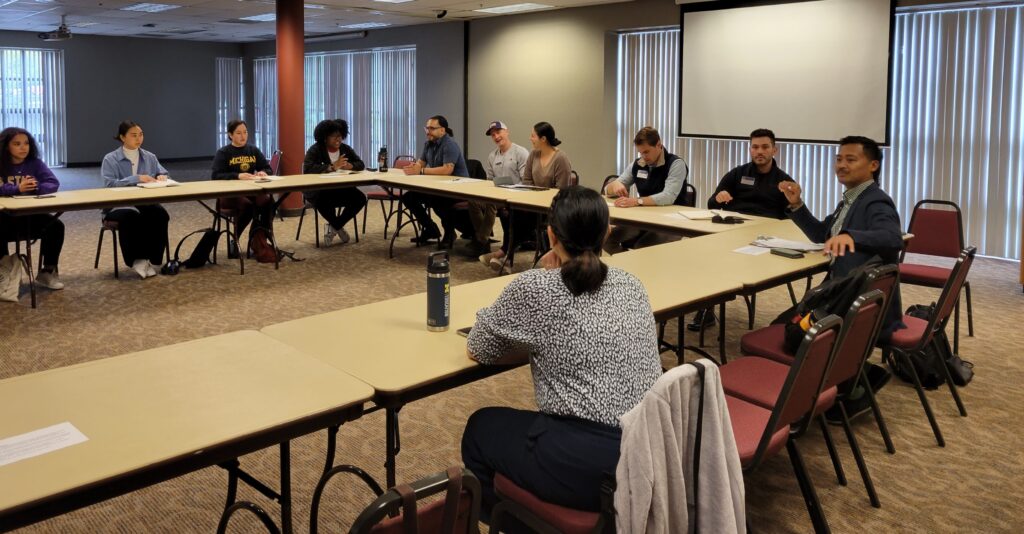
Panel left to right: Chastity Stokes, Area Coordinator, Residential Life; Emmanuel Padilla, Director, Latinx Student Center; Jason Harcum, Outdoors & Leadership Coordinator, Campus Recreation; Elizabeth Gandara, Substance Use Education Coordinator, Health Promotion & Wellness; Evan Jaynes, First Year Experience Manager, New Student & Family Programs; Chris Trudell, Assistant Dean of Students; with moderator/host Alvin Mangosing
–Alex Cabrera, doctoral student
